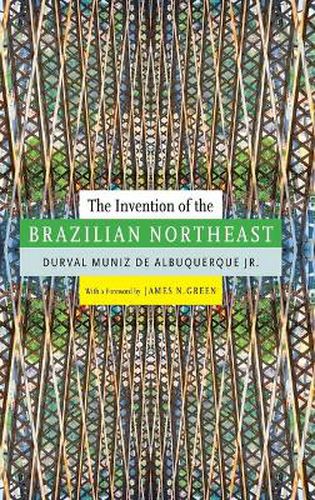Readings Newsletter
Become a Readings Member to make your shopping experience even easier.
Sign in or sign up for free!
You’re not far away from qualifying for FREE standard shipping within Australia
You’ve qualified for FREE standard shipping within Australia
The cart is loading…






This title is printed to order. This book may have been self-published. If so, we cannot guarantee the quality of the content. In the main most books will have gone through the editing process however some may not. We therefore suggest that you be aware of this before ordering this book. If in doubt check either the author or publisher’s details as we are unable to accept any returns unless they are faulty. Please contact us if you have any questions.
Brazil’s Northeast has traditionally been considered one of the country’s poorest and most underdeveloped areas. In this impassioned work, the Brazilian historian Durval Muniz de Albuquerque Jr. investigates why Northeasterners are marginalized and stereotyped not only by inhabitants of other parts of Brazil but also by nordestinos themselves. His broader question though, is how the Northeast came into existence. Tracing the history of its invention, he finds that the idea of the Northeast was formed in the early twentieth century, when elites around Brazil became preoccupied with building a nation. Diverse phenomena-from drought policies to messianic movements, banditry to new regional political blocs-helped to consolidate this novel concept, the Northeast. Politicians, intellectuals, writers, and artists, often nordestinos, played key roles in making the region cohere as a space of common references and concerns. Ultimately, Albuqerque urges historians to question received concepts, such as regions and regionalism, to reveal their artifice and abandon static categories in favor of new, more granular understandings.
$9.00 standard shipping within Australia
FREE standard shipping within Australia for orders over $100.00
Express & International shipping calculated at checkout
This title is printed to order. This book may have been self-published. If so, we cannot guarantee the quality of the content. In the main most books will have gone through the editing process however some may not. We therefore suggest that you be aware of this before ordering this book. If in doubt check either the author or publisher’s details as we are unable to accept any returns unless they are faulty. Please contact us if you have any questions.
Brazil’s Northeast has traditionally been considered one of the country’s poorest and most underdeveloped areas. In this impassioned work, the Brazilian historian Durval Muniz de Albuquerque Jr. investigates why Northeasterners are marginalized and stereotyped not only by inhabitants of other parts of Brazil but also by nordestinos themselves. His broader question though, is how the Northeast came into existence. Tracing the history of its invention, he finds that the idea of the Northeast was formed in the early twentieth century, when elites around Brazil became preoccupied with building a nation. Diverse phenomena-from drought policies to messianic movements, banditry to new regional political blocs-helped to consolidate this novel concept, the Northeast. Politicians, intellectuals, writers, and artists, often nordestinos, played key roles in making the region cohere as a space of common references and concerns. Ultimately, Albuqerque urges historians to question received concepts, such as regions and regionalism, to reveal their artifice and abandon static categories in favor of new, more granular understandings.